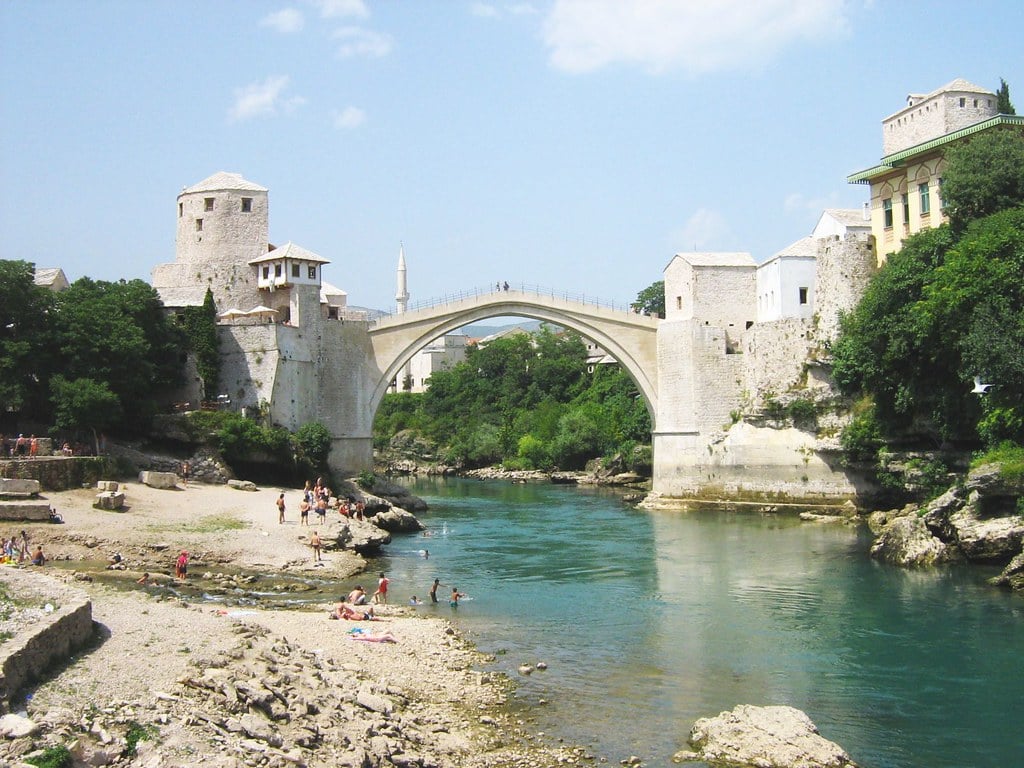Bosnia and Herzegovina is a country located in Southeastern Europe on the Balkan Peninsula. It is bordered by Croatia to the north and west, Serbia to the east, and Montenegro to the southeast, with a small coastline on the Adriatic Sea. The population reaches up to around 3.2 million people across 51,209 km². The capital city, Sarajevo, is a well known and regularly visited destination for all judoka across the globe.
The Bosnia and Herzegovina Judo Federation has a rich history that stretches back over six decades. Established in 1960, during the time when Bosnia and Herzegovina was part of the Socialist Federal Republic of Yugoslavia, the Federation became a key component in promoting and organising the sport of judo in the region. At the time, judo in Yugoslavia was growing steadily, and Bosnia and Herzegovina contributed to the sport’s development in the wider Balkan region.
A New Chapter: Independent National Judo Federation
In 1993, following Bosnia and Herzegovina’s independence after the dissolution of Yugoslavia, the Federation reemerged as the National Judo Federation of Bosnia and Herzegovina. This period marked a significant shift, as the country navigated the aftermath of the war and began to rebuild its national identity across various sectors, including sports. The Federation continued to foster the development of judo, playing a key role in uniting athletes and promoting the sport across the country despite the challenges of post-war recovery.
Though Bosnia and Herzegovina is still waiting for its first Olympic judo medal, the country boasts an impressive list of Olympians who have proudly represented their nation on the world stage. These athletes have brought pride and recognition to Bosnia and Herzegovina through their participation in various international competitions, including the prestigious Olympic Games.
| Larisa CERIĆ | Paris 2024 / 7th place | +78kg |
| Aleksandra SAMARDZIC | Paris 2024 | -70kg |
| Larisa CERIĆ | Tokyo 2020 | +78kg |
| Larisa CERIĆ | Rio 2016 | +78kg |
| Amel MEKIĆ | London 2012 | -100kg |
| Amel MEKIĆ | Beijing 2008 | -100kg |
| Amel MEKIĆ | Athens 2004 | -100kg |
| Arijana JAHA | Sidney 2000 | -52kg |
| Davor VLAŠKOVAC | Atlanta 1996 | -71kg |
| Vlado PARADŽIK | Barcelona 1992 | -60kg |
The Federation continues to build on this legacy, nurturing young talent and aspiring to one day bring home the Olympic medal that so many of its judoka dream of. The dedication of the country’s judo community, coupled with its strong organisational foundation, ensures that the future of judo in Bosnia and Herzegovina is bright.
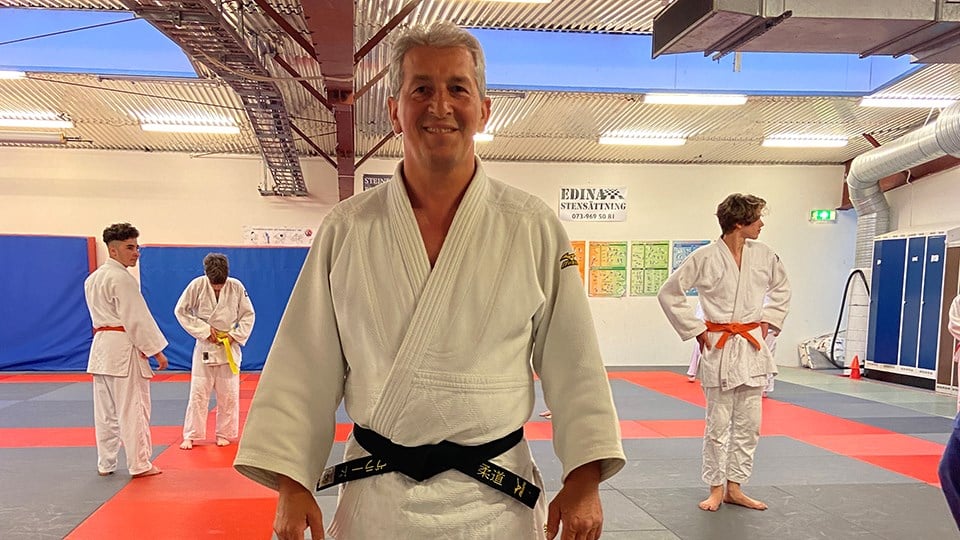
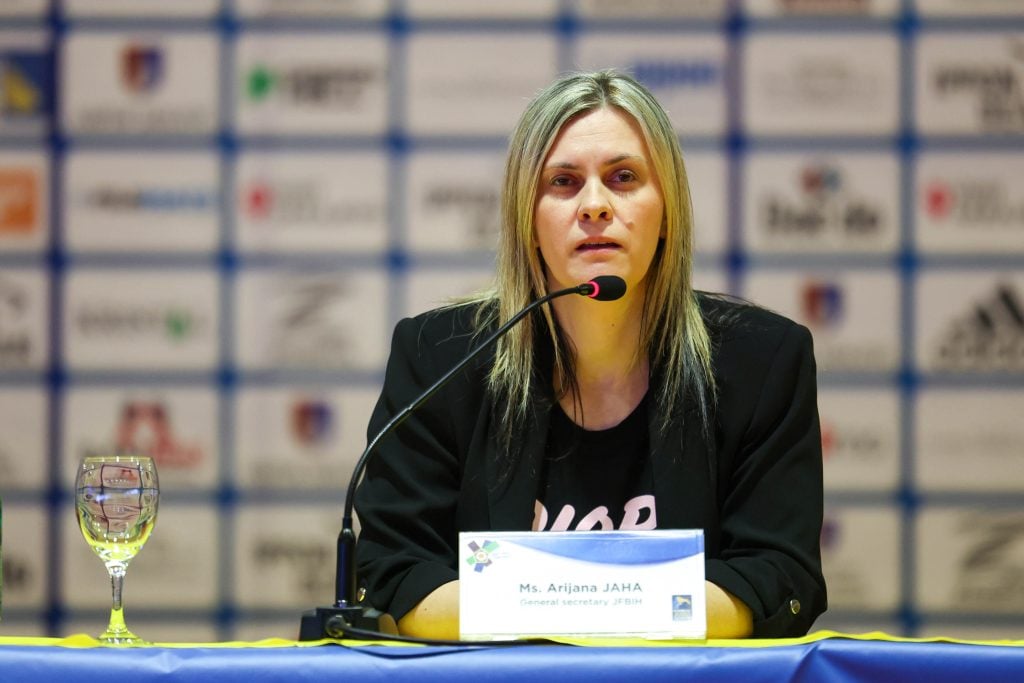
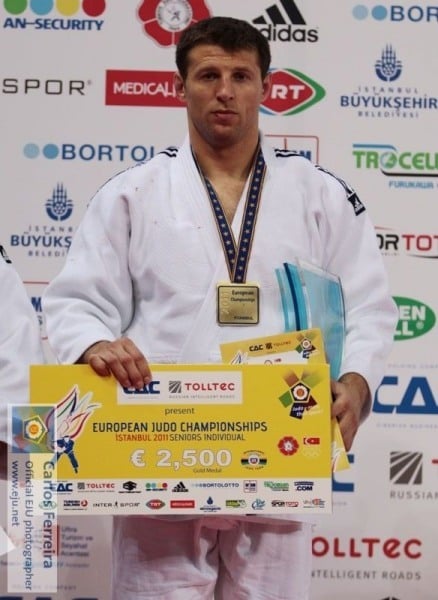
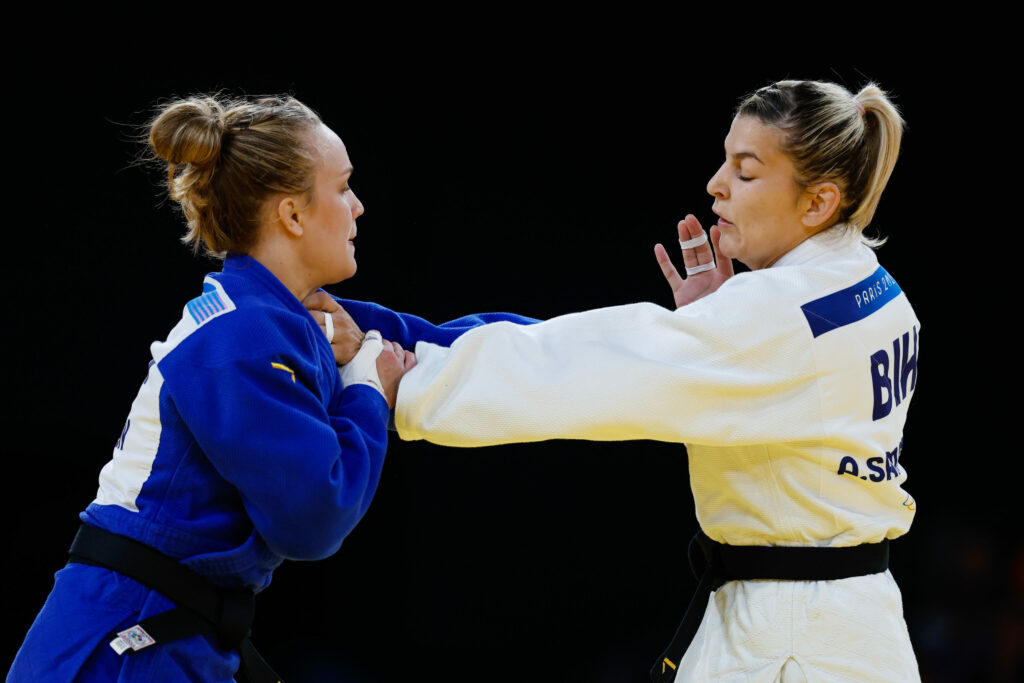
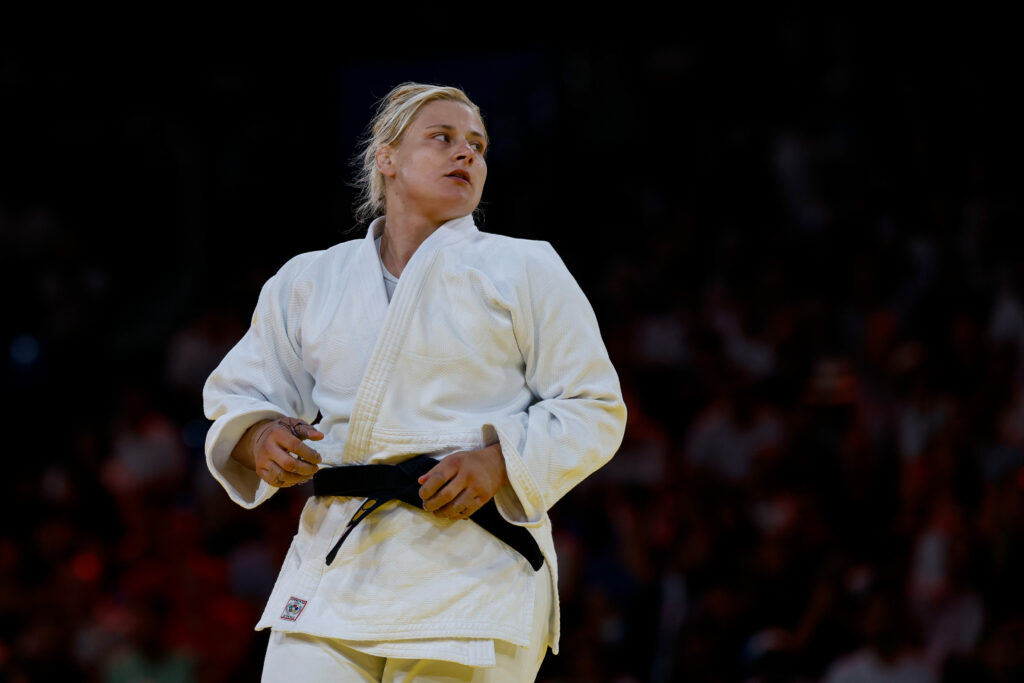
Bosnia and Herzegovina has made significant strides in the international judo scene, achieving several other notable accomplishments. One of the country’s most distinguished judoka, Larisa Cerić, has won two senior World Championship medals. She earned a bronze medal at the 2018 World Championships in Baku and a silver medal at the 2017 World Championships in Marrakesh in the Open Category. Cerić’s success began early in her career when she became a Junior World Champion in 2009, taking home the gold medal in the +78 kg category in Paris. This victory established her as one of Bosnia and Herzegovina’s premier judo talents. Samardzic added to the home tally with a junior world silver medal in 2017.
There are numerous achievements to highlight among Bosnia and Herzegovina’s judo veterans too, particularly Milanko MUCIBABIĆ, who has made significant contributions both on and off the mat. Mucibabić has served as President of the National Olympic Committee of Bosnia and Herzegovina on two occasions, first from 2004 to 2005, and again from 2022 to 2023. He continues to be a member of the NOC’s executive committee and has dedicated much of his life to the sport of judo. In competition, Mucibabić earned a silver medal at the 2022 Veteran World Championships in Krakow and a bronze medal at the 2023 Veteran World Championships in Abu Dhabi, both in the -100 kg division. In addition to his World Championship accomplishments, he secured his fifth Veteran European title in 2024 on home soil, as Sarajevo proudly hosted the Veteran European Championships this year.
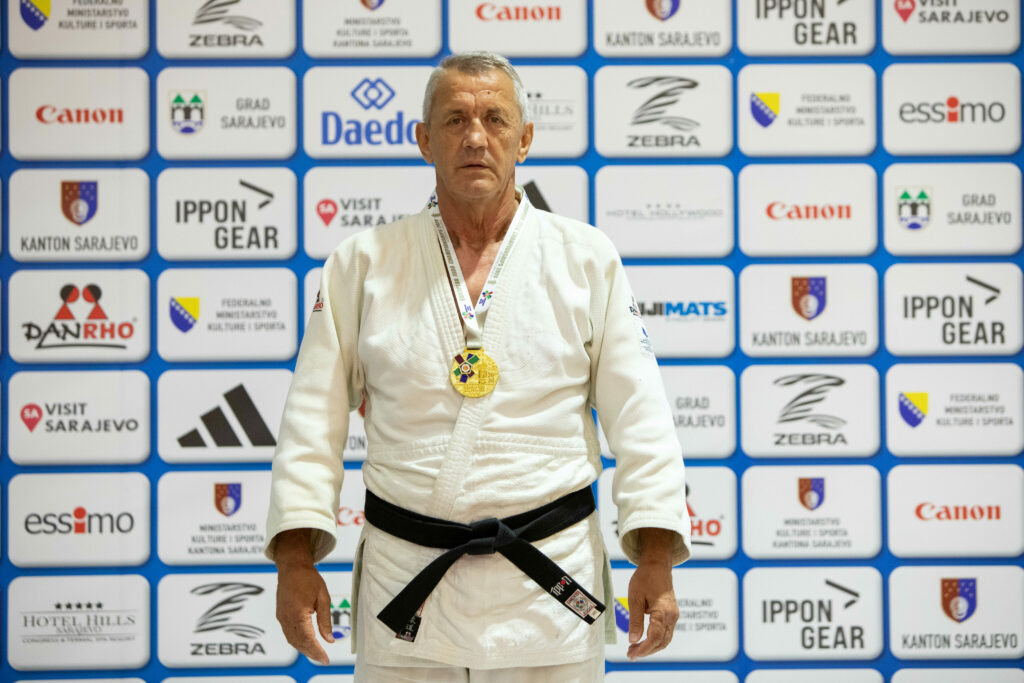
While on the topic of the European Championships, the Federation proudly praises their six senior European medals, earned by the following athletes:
| Larisa CERIĆ | Minsk 2019 | 2nd place |
| Larisa CERIĆ | Tel Aviv 2018 | 2nd place |
| Larisa CERIĆ | Warsaw 2017 | 3rd place |
| Larisa CERIĆ | Montpellier 2014 | 2nd place |
| Amel MEKIĆ | Istanbul 2011 | 1st place |
| Davor VLAŠKOVAC | Birmingham 1995 | 3rd place |
Cerić also secured a gold medal at the U23 European Championships in Prague in 2012, winning in the +78 kg category. While the country has celebrated some success at the European junior level, such as a bronze medal from Samardžić in 2017, as well as several 5th and 7th place finishes at other youth continental events, one of the key development goals for the Federation remains to achieve greater success at the cadet and junior levels. Their latest near-medalist from the 2024 Cadet European Championships was Ivano DJINKIC, who narrowly missed the podium with a 5th place finish in the -81 kg category.
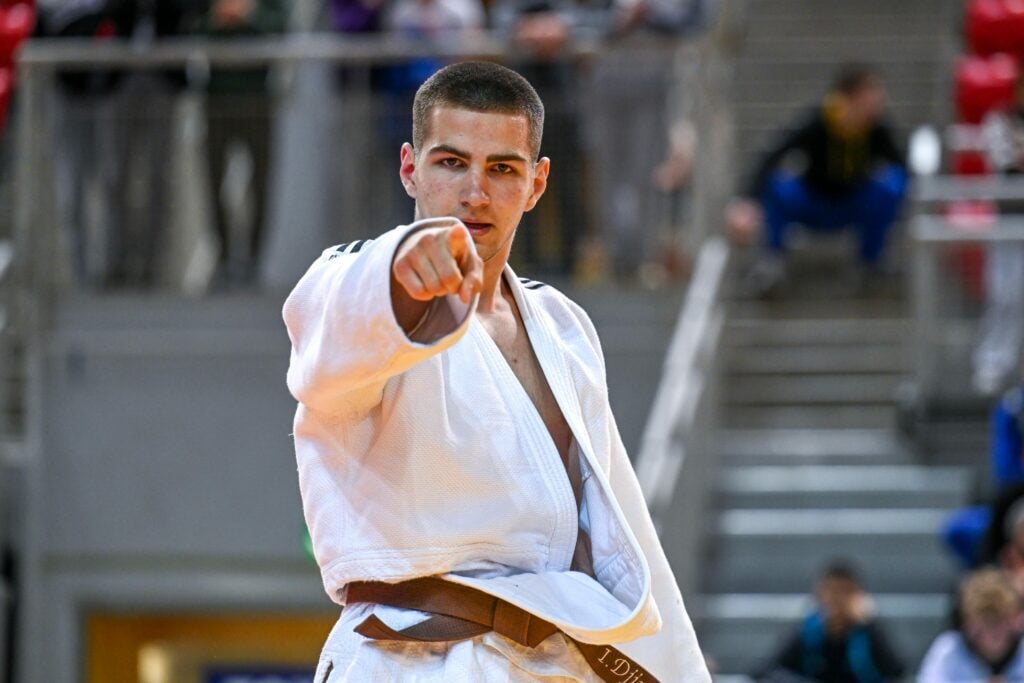
Today, judo has become one of the most practiced martial arts in Bosnia and Herzegovina. The sport has seen significant growth, with around 2,500 judoka actively training and competing. This community is spread across 82 judo clubs throughout the country, showcasing the sport’s widespread appeal and its ability to bring people together across different regions and communities. With continued support and dedication, this tiny but mighty nation, along with its growing judo community, looks forward to many more accomplishments both on and off the tatami.
Off the mat…Did you know?
- Sarajevo is not only a regular host of several judo events but also hosted the 1984 Winter Olympics!
- Trams were first introduced for regular use in Europe in Sarajevo in 1885. These streetcars operated as an animal-powered railway, typically pulled by horses, and occasionally by mules, usually working in pairs.
- You can explore a rainforest in Bosnia and Herzegovina at Sutjeska National Park, which spans 3,500 acres along the Montenegro border. This UNESCO World Heritage Site is home to 170 tree species, diverse flora and fauna, and the Skakavac Waterfall, one of the country’s tallest waterfalls.
- Lilium Bosniacum, known as the Golden Lily, is Bosnia’s national symbol. This native flower traditionally represents gifts and is often used to adorn birthday cakes and wrapping paper. As a heraldic symbol, it dates back to the 14th-century Kingdom of Bosnia and today signifies both Bosnia and the Bosniak people.
- Bosnians deeply love coffee, which is central to their culture. Brewed in a cezve or džezva, Bosnian coffee is finely ground and served unfiltered in small cups. The preparation is a social ritual, with coffee houses (kafanas) as popular gathering spots, symbolising hospitality and community in daily life.
Cover Image: Stari Most Bridge, Mostar, Bosnia and Herzegovina by Mhare by Dunk
Author: Szandra Szogedi



